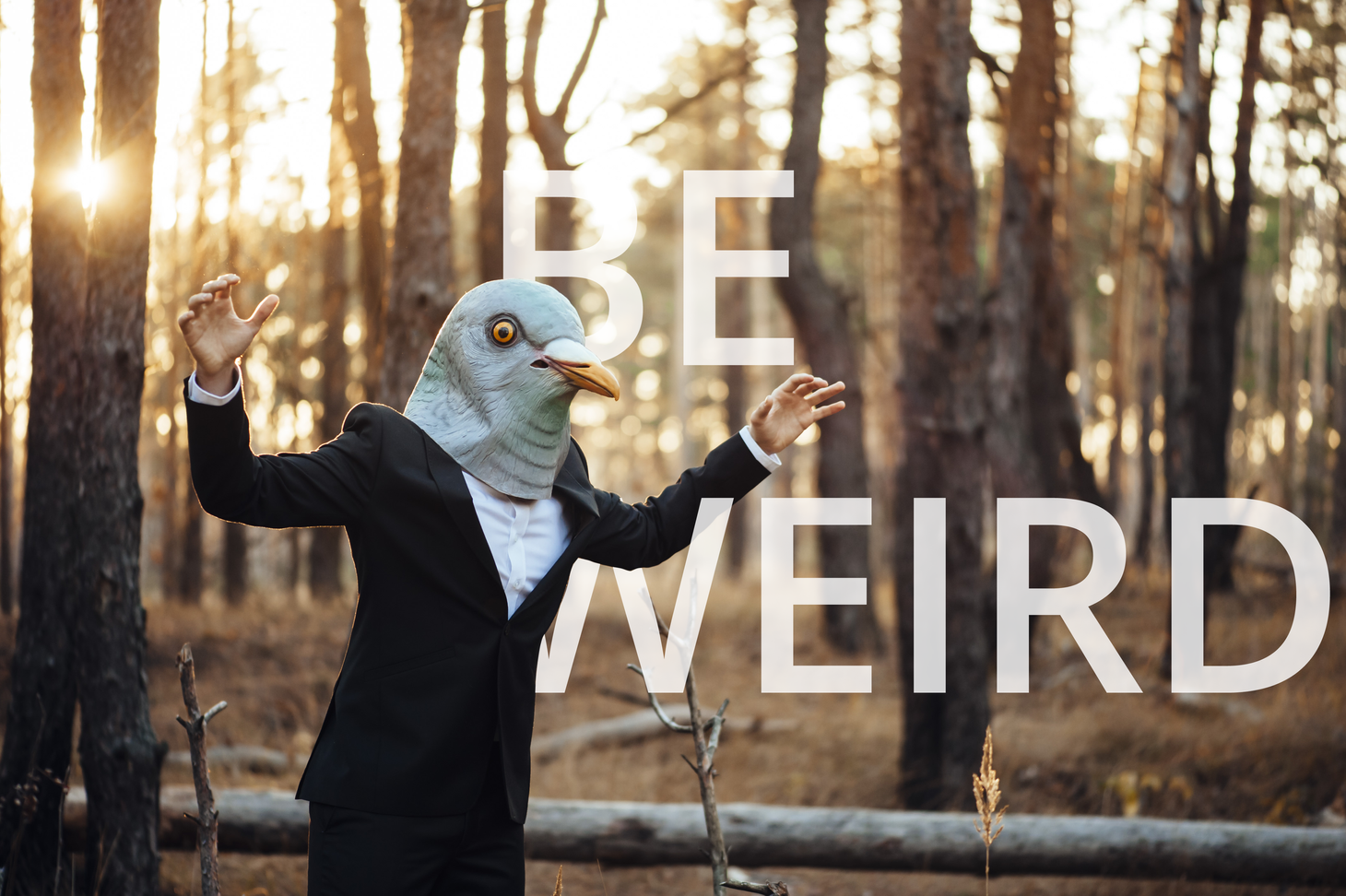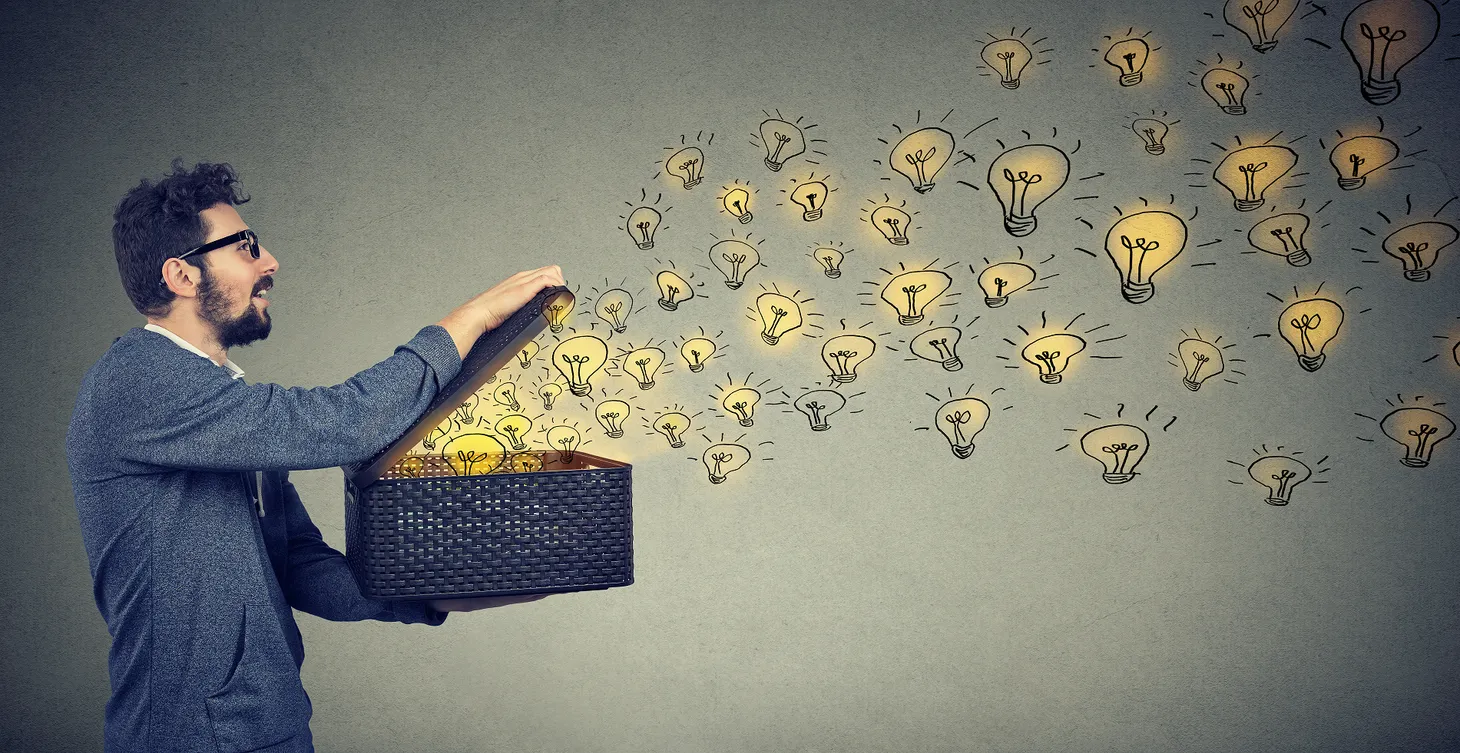Be Willing To Be Weird
Below is the video and transcript for my commencement speech at ITU last month. The topic of the speech was on the entanglement of fear, failure and conformity. To be successful, we all must be willing to be weird. Be different. Use our creativity to win in the emerging creative economy. Note: The f

Below is the video and transcript for my commencement speech at ITU last month. The topic of the speech was on the entanglement of fear, failure and conformity. To be successful, we all must be willing to be weird. Be different. Use our creativity to win in the emerging creative economy.
Note: The following transcript is the speech as written but not exactly as presented as shown by the video above.
For some, the idea of getting up in front of this audience and giving a speech would be enough to cause major panic. The “fear of speaking” reportedly ranks as one of the top 3 of all fears:
Number 1 is the fear of death ..
Number 2 is the fear of giving a speech .. And …
Number 3 is the fear of dying while giving a speech
I will try not to die while up here today … but no promises ..
While we are on it, fear is an interesting emotion. What is fear? Fear is defined as “an unpleasant emotion caused by the belief that someone or something is dangerous, likely to cause pain or a threat.
As humans, we can take fear and by dwelling on it, we can come up with an unlimited number of “what if's” and corresponding negative outcomes.
Fear builds on fear.
Do you know what fear really stand for? Fear stands for false evidence that appears real.
Our brains have an ability to take “false evidence” and twist into the worst possible outcome. To the point of making it “appear real” which can be paralyzing
Why? We strive to be perfect and the “fear of failure” in our mind is the opposite of perfection and therefore not acceptable.We are afraid of not being perfect. Not being the perfect boss. Or the perfect employee. Or the perfect spouse. Or the perfect parent.
And leading up to this day — the fear of not being the perfect student.
So we prioritize all of our efforts to avoid “not being perfect”
Headline – Nobody is perfect!! Failure is part of life and we all fail. We have all — everyone at this event has experienced failure and will continue to experience failure. You cannot avoid it.
The most successful people have learned not to fear failure. They have become “comfortable” with failure for what it is – an education. Failure is an opportunity to learn ..
Every person we look up to have had major failures. Some that most would consider to be “career enders”. But those failures were not career enders.
So how do you address and control your fear??
Some will say you need to be “brave” and fight “fear” and it’s the cowards who fall victim to their fears.
So be brave.
Did you know the opposite of bravery is not cowardice? The opposite of bravery is conformity.
Doing everything the same way that everybody else does it — being like everybody else, thinking the same way everybody else does.
By doing what everyone else does, our hope is to avoid failure. Failure is not something you can avoid no matter how much you conform to what others are doing.
Taking what we think is the “safe” approach actually puts us at more risk. It takes bravery to step out and leave the warm space of conformity and try something new.
Let’s be honest — conformity is comfortable. You know what to expect. You conform to the norms of an office. You conform to the norm of school. It’s predictable.
The problem is the world out there is changing whether we’re ready for it or not.
Conformity is not preparing you and I to compete and succeed!
What constitutes success in the future is not the same thing that defined success in the past.
When I started my career, success was defined as doing the tasks that our boss assigned to us and doing those well. Then getting our performance review, getting your two to three percent pay increase, and then wake up every morning and repeat, and then repeat it every day for the next 30 years of our career.
In the new creative economy that we are moving towards, the definition of success is different.
The definition of success in the creative economy is your ability to create ideas that create significant value for the organizations that you are a part of.
The days of just being a cog in the wheel and doing what other people tell you to do is not where value will be created in the future.
Value and success will come to those that are creative — that use ingenuity to create ideas to solve problems.
And this creative economy is coming much faster than any of us predicted.
The ability for any economy to succeed is going to be based on its citizens embracing the coming creative economy and learning how to take a natural ability that we all have and use creative thinking and ingenuity to solve problems and identify new opportunities.
Your work and success here at ITU has prepared you to be a leader in the coming creative economy.
But not everyone has taken the step you have. They have not prepared themselves for the future.
In a recent study, only 25% of the population believe they are creative and applying it to create value therefore 75% of the world’s population do not see themselves as creative and are not ready to compete in the creative economy.
What does this say about our economic future when only 25% of the workforce is ready?
Just by completing your studies at ITU, you are part of the 25% and have created a competitive advantage for yourself.
Now it’s not all doom and gloom. I’m not that pessimistic. I think we have a bright and exciting future. Why?
Because of you and my grandkids. You because of the hard work you did to get here today and my grandkids.
I have 5. Yes I know I’ve been told I look pretty good for a grandfather of 5.
My grandkids are the perfect example of being highly creative. I’m amazed at how many different ways they can take a toilet paper roll and turn it into some creative toy. They have no limit to their imagination.
Why? Because they don’t care what you think about them. They have no concept yet of conformity. They are not looking for acceptance. They already have it.
In their minds, when they do something incredibly cute and funny, they don’t see us as laughing at them but instead they see our joy in what they have created.
They don’t understand yet the concept of conformity. They are exploring. They are experimenting.
They aren’t letting others tell them how to think. Or how to act. Or what to wear. Or what should make them happy.
They are avoiding the conformity trap and we all need to do whatever we can to protect ourselves, and our kids and our grandkids, from this trap.
So why do 75% of the population think they are not able to contribute to the creative economy?
They don’t see being creative, being innovative, as “being normal”.
Creativity and innovation requires risk and risk of failure is not comfortable and being uncomfortable, taking risk, is something 75% of the population avoid.
It takes a lot to step out and share our creativity, to show off our ideas.
We as a society need your human ingenuity and creativity to solve some of our biggest problems and create the opportunities for the future.
It was creativity and human ingenuity that came up with the polio vaccine. It was creativity that put the man on the moon. It was creativity under pressure that saved the Apollo 13 astronauts and bring them home safely. And it was creativity that invented the microprocessor which is what’s enable the electronics that we all are carrying around in our pockets.
If you think about the level of impact from creative thinking has in our daily lives, it’s immeasurable!
The biggest barrier to unleashing human creativity is fear.
Remember what I said? What is fear? What does fear stand for?
False evidence that appears real.
So why am I such a strong believer in this message?
I’ve been fortunate in my career. I’ve experienced success way beyond what I could have anticipated growing up during the tough times of Chicago in the 60’s. And what I realized was that my success wasn’t because of some special gift or special skill.
So what was my secret??
The secret I discovered to having a highly successful career is:
1) Don’t let fear and conformity control you. Be willing to be weird.
Be willing to be weird.
2) Take the risk and use your natural creative ability to solve problems and create opportunities.
Sounds simple doesn’t it.
Find that creative courage and be brave and remember, bravery is not the opposite of cowardice; bravery is the opposite of conformity.
You stepping out and getting your degree is the perfect example of not conforming. Congratulations on your success.You are prepared to be the innovation leaders we need — so go lead!
To be weird is to not conform to the thinking and actions of others — and it's ok to be weird.
Phil McKinney Newsletter
Join the newsletter to receive the latest updates in your inbox.




